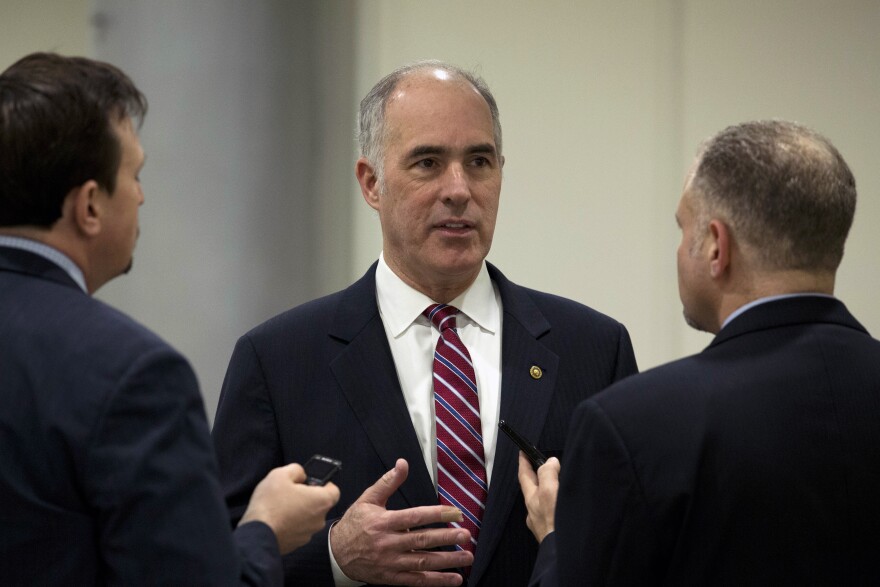While Pennsylvania officials made assurances Wednesday that the state's medical community is preparing for a potential coronavirus outbreak, U.S. Sen. Bob Casey accused President Trump of not taking the outbreak seriously.
“[Elected officials] shouldn’t purposefully or intentionally give inaccurate information, and shouldn’t try to spin this so it helps someone politically,” Casey said. “The President has to do a much better job in giving accurate information all the time. I think it’d be better if he did very little talking and if he let the experts – the scientists and the professionals – do the talking with the American people.”
In a Senate committee hearing on Capitol Hill Tuesday, Casey also criticized the Trump administration for encouraging the use of short-term health care plans, which offer limited coverage and fewer protections for patients.
"We got a report where a guy got tested for the flu to make sure he didn't have coronavirus," Casey said at the Health, Education, Labor & Pensions committee hearing. "He finds out that his insurance is one of those short-term, limited-duration plans and doesn't cover basic testing. I hope this challenge we're facing will convince the administration that the advancement of junk plans are really dangerous especially when we face this kind of a threat. I'd hope they rethink their regulatory strategy going forward."
On Wednesday, Casey touted the need for a supplementary budget appropriation that could provide more than $8 billion in emergency funding to federal agencies, and provide reimbursement to state and local health departments that are handling outbreaks.
“This challenge is only growing,” Casey said, urging his Republican colleagues to find a compromise on the funding package. Congressional leaders did just that hours after the Pennsylvania Democrat's press call.
But Casey applauded the work of the Pennsylvania medical community to prepare for a possible outbreak, including taking the precautionary steps of isolating and monitoring more than 20 individuals in the University of Pennsylvania Health System system on the eastern side of the state.
“That involved taking them from triage, putting a mask on them, isolating them and then taking further steps,” said Dr. P.J. Brennan, the health system's Chief Medical Officer during the call with reporters.
Brennan said those individuals were isolated due to red flags that went up during their examination. But those patients there didn't meet the criteria for screening patients and therefore weren't further evaluated for coronavirus.
"On further questioning, we realized they had been back from China or another area for longer than the incubation period and did not warrant further evaluation down that pathway," he said.
“We currently have no confirmed cases in the state of Pennsylvania,” said Mark Ross, vice president of emergency management at the Hospital and Healthsystem Association of Pennsylvania. “We have been planning, exercising for pandemics for a number of years and we are working together in a very cohesive fashion with all the hospitals."
A spokesperson for the Pennsylvania Department of Health said there are individuals being tested in Pennsylvania but that there are no confirmed cases in the state as of yet.
There have been more than 100 cases in the United States and nine deaths.
WESA reported Tuesday that health systems in western Pennsylvania have not tested any patients for COVID-19, the disease caused by the coronavirus, but are prepared to do so if necessary.




